 EDITOR'S PICK
EDITOR'S PICK
Nuclear Alchemy: Turning Waste into Wonder Fuel
18 Aug 2025 | Synopsis
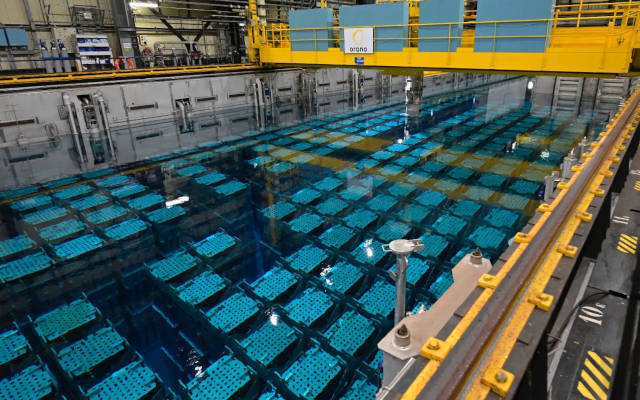 Los Alamos nuclear physicist proposes converting radioactive waste into tritium - the rare $33M/kg fusion fuel that is quickly running out. Using particle accelerators & molten lithium, the process could produce 10x more tritium than fusion reactors while solving nuclear waste crisis. However, it faces challenges: massive infrastructure needs, precise timing, & unproven at scale. It could transform a liability into a climate solution.
Los Alamos nuclear physicist proposes converting radioactive waste into tritium - the rare $33M/kg fusion fuel that is quickly running out. Using particle accelerators & molten lithium, the process could produce 10x more tritium than fusion reactors while solving nuclear waste crisis. However, it faces challenges: massive infrastructure needs, precise timing, & unproven at scale. It could transform a liability into a climate solution.Switzerland's Innovation in Travel and Tourism: Now, Arbon's Autonomous Electric Bus to Boost Tourism
18 Aug 2025 | Synopsis
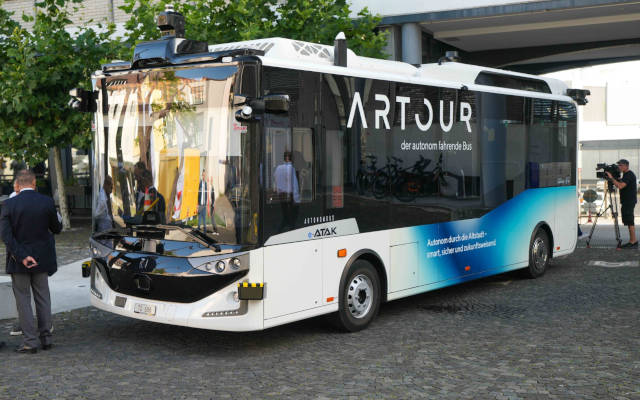 Arbon, Switzerland is launching ARTOUR, the country's first autonomous electric bus, in late 2025. The Karsan e-ATAK will run a 2.5 km route with nine stops, linking the historic center to Saurer Werk 2 housing. Operated by Eurobus Ostschweiz AG under the SCCL project, it aims to boost tourism and sustainable mobility. ARTOUR offers zero-emission travel and showcases Switzerland's push toward smart, eco-friendly public transport.
Arbon, Switzerland is launching ARTOUR, the country's first autonomous electric bus, in late 2025. The Karsan e-ATAK will run a 2.5 km route with nine stops, linking the historic center to Saurer Werk 2 housing. Operated by Eurobus Ostschweiz AG under the SCCL project, it aims to boost tourism and sustainable mobility. ARTOUR offers zero-emission travel and showcases Switzerland's push toward smart, eco-friendly public transport.Trio of Ex-Tesla Employees Start EV Charging Company in the UK After Elon Musk Fired Everyone
18 Aug 2025 | Synopsis
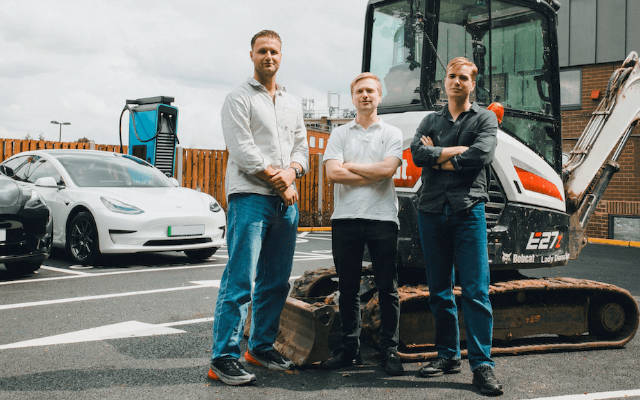 After Elon Musk abruptly fired Tesla's entire Supercharger team, three ex-employees launched Hubber, a UK-based EV charging startup focused on high-speed urban hubs for taxis and delivery fleets. Leveraging their experience deploying over 1,200 chargers, they aim to fill the urban fast-charging gap. Backed by £60M (~$81M), Hubber's first site opens August 20 in South London with 12 bays and up to 300kW chargers.
After Elon Musk abruptly fired Tesla's entire Supercharger team, three ex-employees launched Hubber, a UK-based EV charging startup focused on high-speed urban hubs for taxis and delivery fleets. Leveraging their experience deploying over 1,200 chargers, they aim to fill the urban fast-charging gap. Backed by £60M (~$81M), Hubber's first site opens August 20 in South London with 12 bays and up to 300kW chargers.Rivian's Also: A Billion-Dollar Bet on Small Electric Vehicles
18 Aug 2025 | Synopsis
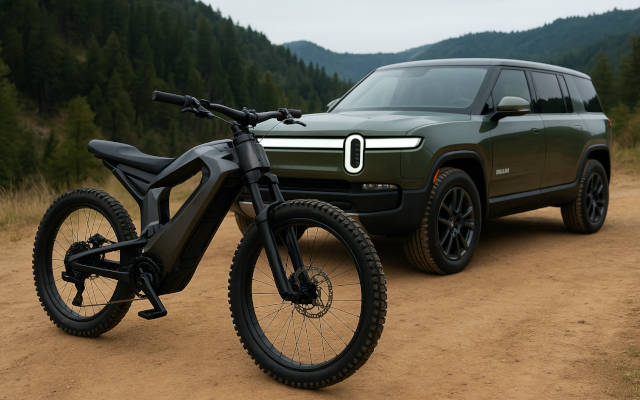 Rivian's spin-out, Also, is a billion-dollar bet on premium small-format EVs like e-bikes and scooters. Incubated as "Project Inder," it's now a standalone company backed by Greenoaks Capital. With design input from Jony Ive's LoveFrom and Rivian's tech, Also aims to bring connected, stylish micromobility to urban markets. Though no products are launched yet, its strategy blends Rivian's infrastructure with startup agility..."
Rivian's spin-out, Also, is a billion-dollar bet on premium small-format EVs like e-bikes and scooters. Incubated as "Project Inder," it's now a standalone company backed by Greenoaks Capital. With design input from Jony Ive's LoveFrom and Rivian's tech, Also aims to bring connected, stylish micromobility to urban markets. Though no products are launched yet, its strategy blends Rivian's infrastructure with startup agility..."Ben & Jerry’s Ditches ICE For Rivian’s Van
18 Aug 2025 | Synopsis
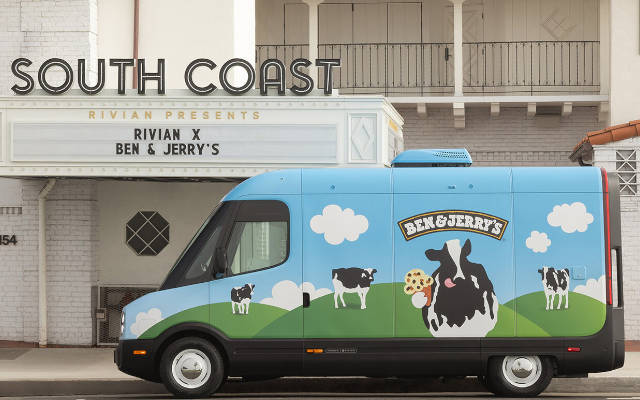 Rivian and Ben & Jerry’s have teamed up to create two all-electric "scoop trucks" built on Rivian's Commercial Van platform. Debuting at SXSW in Austin, the eco-friendly vehicles boast a 161-mile range and combine refrigeration and serving windows inside. After the launch, they'll travel nationwide...to bring scoops with less noise, emissions, and fossil-fuel reliance...showcasing Rivian's commercial EV versatility..."
Rivian and Ben & Jerry’s have teamed up to create two all-electric "scoop trucks" built on Rivian's Commercial Van platform. Debuting at SXSW in Austin, the eco-friendly vehicles boast a 161-mile range and combine refrigeration and serving windows inside. After the launch, they'll travel nationwide...to bring scoops with less noise, emissions, and fossil-fuel reliance...showcasing Rivian's commercial EV versatility..."
 Si Exclusive
Si Exclusive
Hydrogen's Flight Path: Fuel Cells, Turbines, and the Economics of Clean Aviation
10 Oct 2025 |  Aviation is shifting from Jet A to four fuel systems: electricity, hydrogen (fuel cell and combustion), SAF, and petroleum. Fuel cells suit short-haul aircraft; hydrogen combustion may power long-range jets. SAF bridges legacy fleets. Hydrogen costs - $5-$7/kg today, possibly $2/kg by 2040 - impact ticket prices and infrastructure decisions. Airport authorities, airlines, and governments will share deployment costs. Each fuel has distinct environmental pros and cons shaping aviation's net-zero future.
Aviation is shifting from Jet A to four fuel systems: electricity, hydrogen (fuel cell and combustion), SAF, and petroleum. Fuel cells suit short-haul aircraft; hydrogen combustion may power long-range jets. SAF bridges legacy fleets. Hydrogen costs - $5-$7/kg today, possibly $2/kg by 2040 - impact ticket prices and infrastructure decisions. Airport authorities, airlines, and governments will share deployment costs. Each fuel has distinct environmental pros and cons shaping aviation's net-zero future.
 11 Oct 2025 08:45:01 UTC |
RECENT PODCASTS
BYD Soars - Cheaper Tesla Models - The Bolt is Back - Rivian
SEARCH RSSTREAM
 48 New Postings In Past 24 Hours
48 New Postings In Past 24 Hours
Category:mobility
Region:Europe
Date:10 Oct 2025
Category:energy
Region:Global
Date:10 Oct 2025
Category:mobility
Region:SoAmerica
Date:10 Oct 2025
Category:energy
Region:NoAmerica
Date:10 Oct 2025
Category:mobility
Region:NoAmerica
Date:10 Oct 2025
Category:finance
Region:AsiaPacific
Date:10 Oct 2025
Category:policy
Region:NoAmerica
Date:10 Oct 2025
Category:finance
Region:NoAmerica
Date:10 Oct 2025
Category:mobility
Region:AsiaPacific
Date:10 Oct 2025
Category:policy
Region:NoAmerica
Date:10 Oct 2025